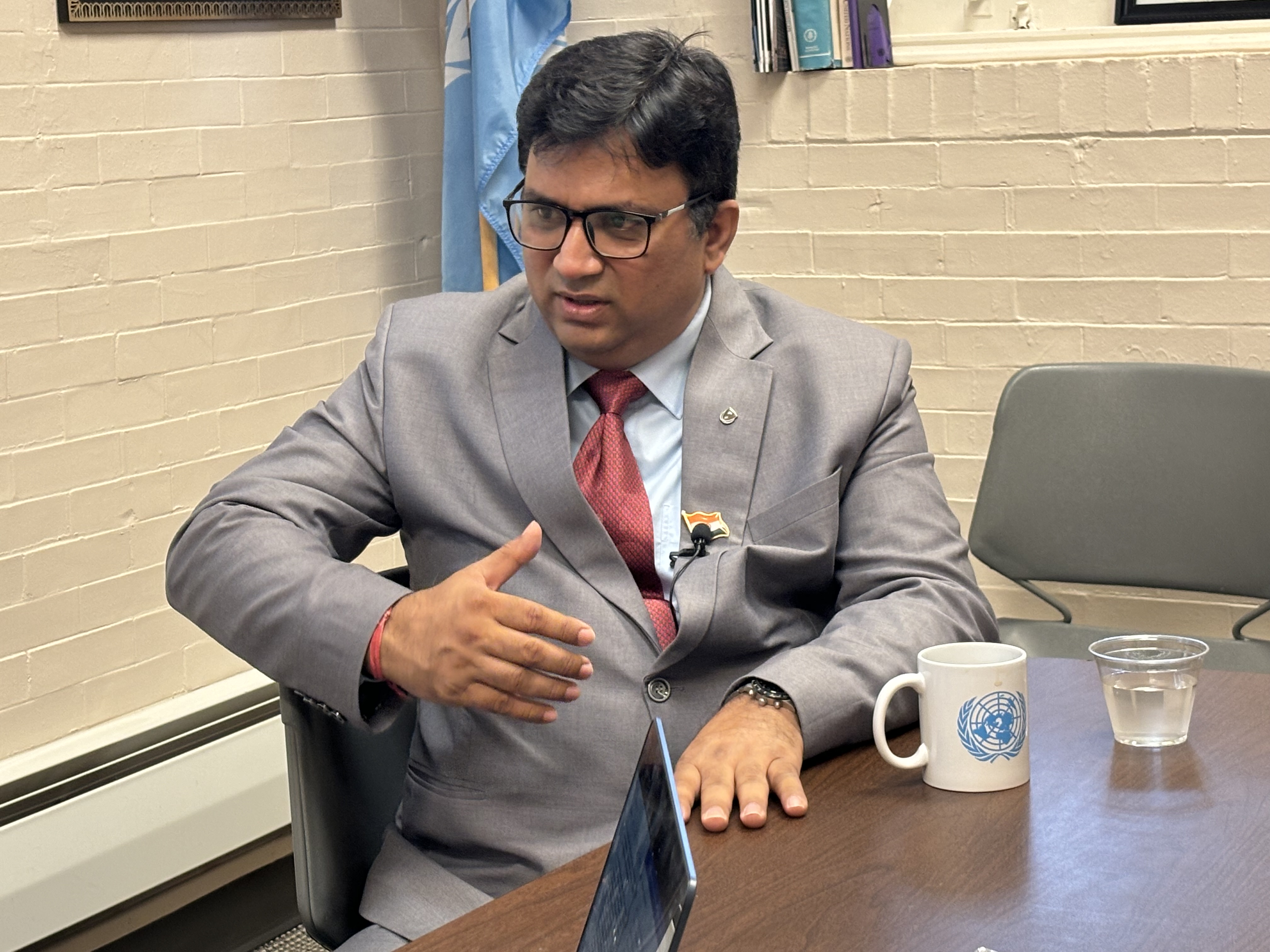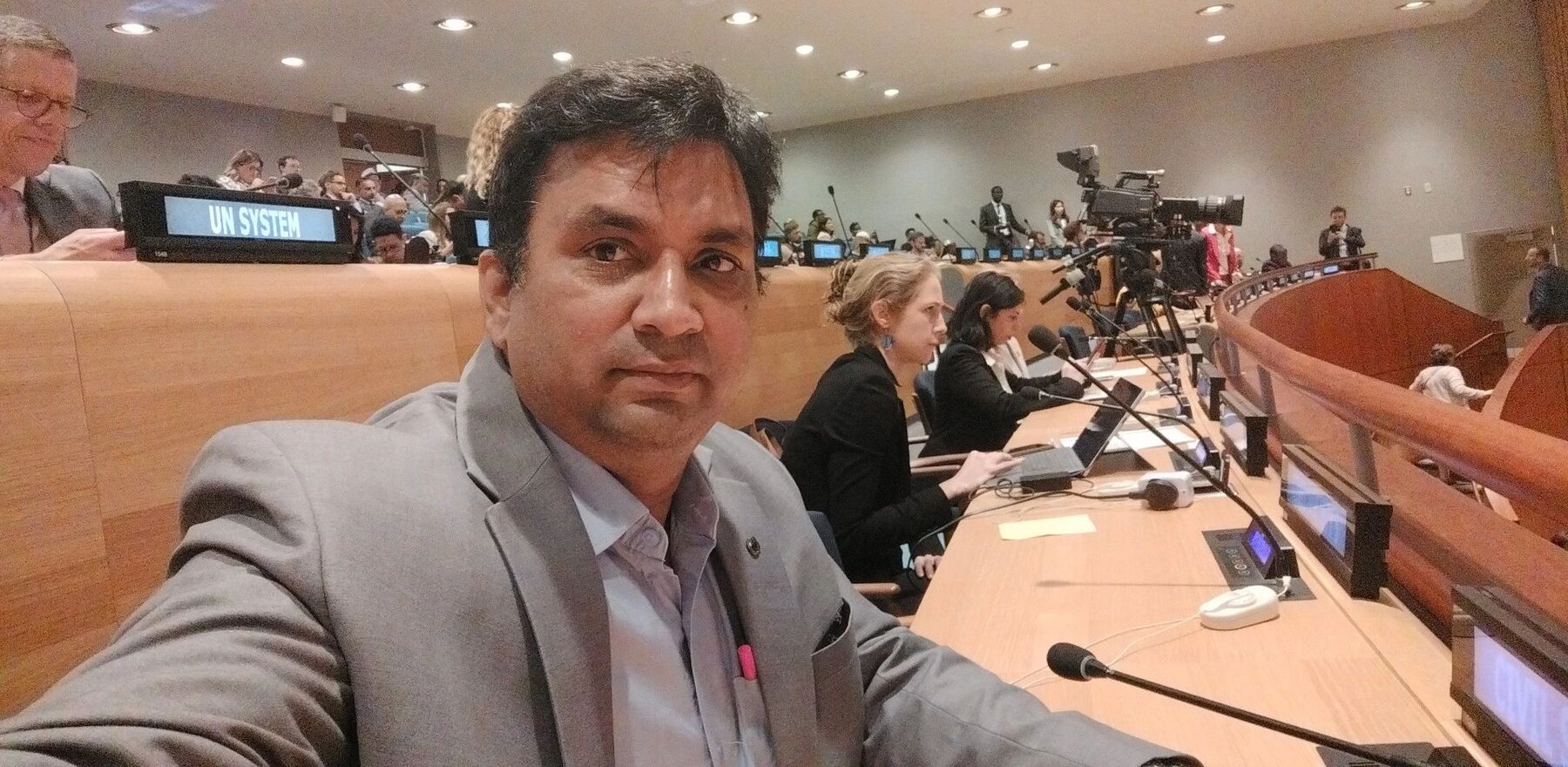Binod Anand, Secretary-General of the Confederation of NGOs of Rural India (CNRI), spoke to Lehigh University students in an event organized as part of the LU/UN Partnership’s 20th anniversary
The Secretary-General of the Confederation of NGOs of Rural India (CNRI), which represents more than 7,100 non-governmental organizations across the country, spoke with Lehigh students last week about sustainable development, STEM education, and strategies for creating practical innovations and sustainable business models.
Binod Anand spoke on behalf of CNRI, the largest confederation of NGOs in the world. The organization is a key partner with the Lehigh University/United Nations (LU/UN) Partnership, which organized Anand’s campus visit and keynote remarks as part of the partnership’s 20th anniversary.

“Challenge yourself, struggle with yourself, and win over yourself,” Anand said. “When you fight with others, sometimes you lose, and that’s all right. But when you fight with yourself, you always win.”
CNRI is a network of non-governmental organizations aimed at promoting rural development and empowering marginalized communities across India. By fostering collaboration, it aims to address issues such as poverty, unemployment, lack of access to healthcare and education, and environmental sustainability in rural regions of India.
The organization’s goals are aligned with the U.N.’s 17 sustainable development goals, which include reducing inequalities, supporting sustainable cities and communities, and taking urgent action to combat climate change and its impacts.
During his keynote remarks on Sep. 24, Anand discussed the importance of STEM education in developing critical thinking skills and innovative solutions to contemporary challenges. He highlighted the critical role STEM plays in addressing global challenges, including environmental issues, while emphasizing the need for technical innovations.
Anand emphasized the need to embed sustainability into STEM education, urging young innovators to focus on small-scale, practical solutions rather than large projects. He also discussed the importance of having an entrepreneurial mindset, encouraging students to develop sustainable business models that address challenges in developing countries.
"Let’s create a system where we can develop ideas and bring together a cohort to address the challenges of developing and least-developed countries,” Binod said. “We can suggest executable [solutions] through policy, startups, and businesses, where even small changes can make a big impact."
Each year, more than 1,000 Lehigh faculty, staff, and students attend U.N. conferences, high-level briefings, and private meetings with ambassadors and other U.N. officials in New York City and on campus.
The Partnership offers myriad ways to engage the U.N., including internships, class trips, faculty research presentations, the LU/UN Youth Representatives Program, the UNA-Lehigh Student Club, and more. Youth Representatives have been placed at CNRI for each of the last two years, Hunter said.
In addition to his keynote remarks, Anand toured the campus, visited with students, and spoke with other members of the Lehigh community during his visit. This included Dork Sahagian, Professor of Earth & Environmental Science, whose research interests include tectonics, sea level, and the environmental impacts of human activities.
During his keynote remarks, Anand stressed the importance of personal growth and self-challenge over external expectations, promoting a mindset that prioritizes sustainable living. He emphasized the need for greater unity between different people and nations, and urged collaboration among young leaders to create impactful policies that resonate with the needs of developing nations.
Anand’s appearance was part of a year-long celebration of the LU/UN Partnership’s 20th anniversary. It continues Lehigh’s long history of engagement with the United Nations since 2004, when it became the sixth university in the world to gain Non-Governmental Organization (NGO) status at the U.N.
Visit this page or download this eight-page booklet to learn more about the LU/UN Partnership’s 20th anniversary and view a 20-year timeline of the Partnership.
